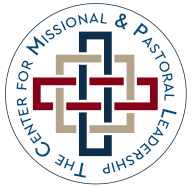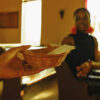CMPL Newsletter
March 22, 2025
Reformation
Biblical. Reformational. Missional. Affordable. Global. These are the five key themes around which we organized the Center for Missional and Pastoral Leadership. What do we mean by “Reformational”? At its heart, the church Reformation of the Sixteenth Century sought to focus on Christ, and Christ alone. Solus Christus! Christ alone! His work only can accomplish God’s purposes. His work alone restores us to God, our Father. His work alone sends the Holy Spirit, who will lead us into all truth. As Jesus Christ prays in John 17: “Sanctify them in the truth; your word is truth.”
Supporting the “Christ Alone” are the great “solae” of the Reformation: Sola Scriptura, sola gratia, and sola fide(by Scripture alone, by grace alone, and by faith alone). Notice that these Latin phrases are in the ablative grammatical case; they indicate the means by which something happens. That is, they answer the question of how we get to the key teaching of Christ alone: We learn of him and know truth by Scripture alone. We receive him by faith alone. And this faith is given to us purely by God’s grace, his gift, alone.
From the center point of Jesus Christ, core theological principles help us keep Christ and his work central. Themes such as the theology of the cross, the foundational and formative role of the Scriptures, the distinction between law and gospel, justification by faith, the role of the sacraments in creating and sustaining faith, the two kingdoms, the mutual consolation of the brethren, and Christian vocation are emphasized not only in doctrinal courses, but in all courses.
The classic—indeed normative—expression of Reformation theology as found within the Lutheran church are the writings included in the Book of Concord. This collection begins with the ecumenical creeds, the Apostles Creed, the Nicene Creed, and the Athanasian Creed. These ancient statements of faith are shared by all Christians throughout history and highlight the continuity of Christian teaching from the beginning to the present day.
The remaining writings seek to demonstrate that the teachings of Luther, Melanchthon, and others was in continuity with the ancient orthodox faith. In particular the Augsburg Confession of 1530 and its longer explanation (“Apology”), sought to resolve disagreements in teaching, so that all Christians “brought back to one simple truth and Christian concord, that for the future one pure and true religion may be embraced and maintained by us, that as we all are under one Christ and do battle under Him, so we may be able also to live in unity and concord in the one Christian Church.” That is, the writings do not seek to create a new church or new teaching, but to lay out what is the shared faith of all who confess Jesus Christ as Lord.
The Small and Large Catechisms of Luther in particular are intended to be summaries of biblical teaching on the Ten Commandments, the Apostles Creed, the Lord’s Prayer, Baptism, the Lord’s Supper, and Confession and Absolution. They remain essential handbooks of teaching the faith to young and old.
The Reformation teaching, however, is not merely an academic exercise. Theology is expressed in Christian living, teaching, worship, pastoral care, and all aspects of life. Martin Luther himself wrote numerous hymns that expressed this theological focus clearly:
Lord, keep us steadfast in your Word / curb those who deceit or sword / would wrest the kingdom from your Son / and bring to naught all he has done.
Notice that the Kingdom belongs to the Son, Jesus Christ, and it is his work (“all he has done”) is our focus. We remain faithful to Christ by being “steadfast in his Word.”
A modern hymn that reflects this Christ-centered focus is Keith and Kristin Getty’s In Christ Alone:
In Christ alone my hope is found / He is my light, my strength, my song / This cornerstone, this solid ground / Firm through the fiercest drought and storm / What heights of love, what depths of peace / When fears are stilled, when strivings cease / My comforter, my all in all / Here, in the love of Christ, I stand
The hymn concludes:
Up from the grave, He rose again / And as He stands in victory / Sin's curse has lost its grip on me / For I am His and He is mine / Bought with the precious blood of Christ.
Since the Scriptures and Reformation theology focuses on the work of Christ as that alone which restores humanity to God, true teaching, while essential, is never an end in itself. Luther’s explanation of the Lord’s Prayer in the Large Catechism emphasizes that this good news of the work of Christ is to be sent out so that all people might be brought to Christ:
“’Thy Kingdom come’! “We pray that the kingdom may come to those who are not yet in it, and, by daily growth that it may come to us who have received it…Dear Father, we pray, give us first Your Word, so that the Gospel may be preached properly throughout the world”
Watch this presentation from ILT president Dennis Bielfeldt as an example of how our courses emphasize and uphold biblical and indeed universal truth.
| Thank you for joining the weekly newsletter from The Center for Missional and Pastoral Formation! |
| Our goal is to support congregations and leaders through outstanding theological education, with an emphasis on the Bible, our Reformation heritage, God’s mission, our global context, all delivered in an affordable way. |
| Through our partnership at the Institute of Lutheran Theology, we deliver online theological education with some of the best Lutheran teachers and scholars. This newsletter will update you on the program, courses being offered, introduce you to the faculty, and share resources. We will also share prayer opportunities and how to connect to CMPL and ILT as a full-time or part-time student. Our prayer is that we may all be “children of God without blemish in the midst of a crooked and perverse generation, in which you shine like stars in the world, holding forth the word of life” (Philippians 2:15-16).
We look forward to partnering with you in this work of God. |
Rev. Dr. Jeffrey Kloha
Jeffrey Kloha is the Dean of the Center for Missional and Pastoral Leadership. He previously served as Chief Curatorial Officer of the Museum of the Bible in Washington D.C. (2017-2024). He was responsible for the overall artifact collection, exhibitions, educational programs, and research projects offered by the museum. Prior to then he was Provost and Professor of Exegetical Theology (New Testament) at Concordia Seminary, St. Louis (1999-2017). He served as Associate Pastor of Gethsemane Lutheran Church, Lakewood, OH, and currently also serves as Associate Pastor at Our Savior Lutheran Church, Arlington, VA. Kloha has contributed to 31 scholarly published books and articles as well as supervising 13 student theses and publications.







